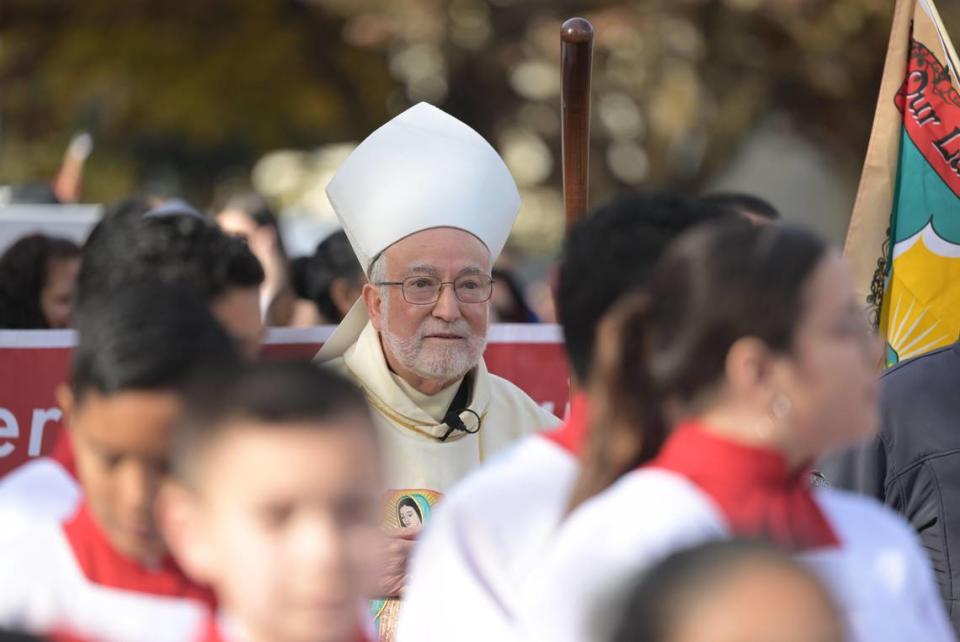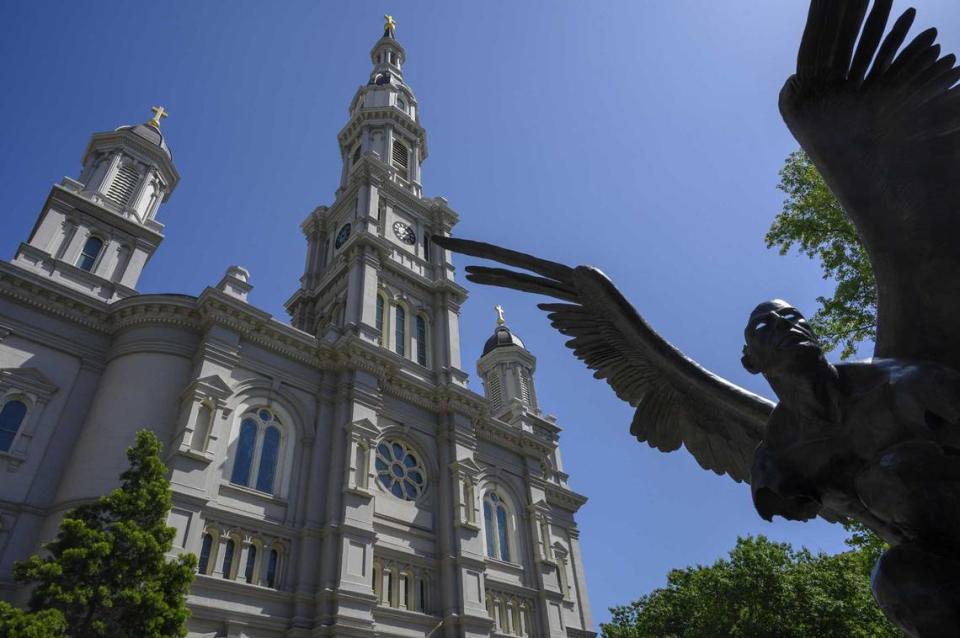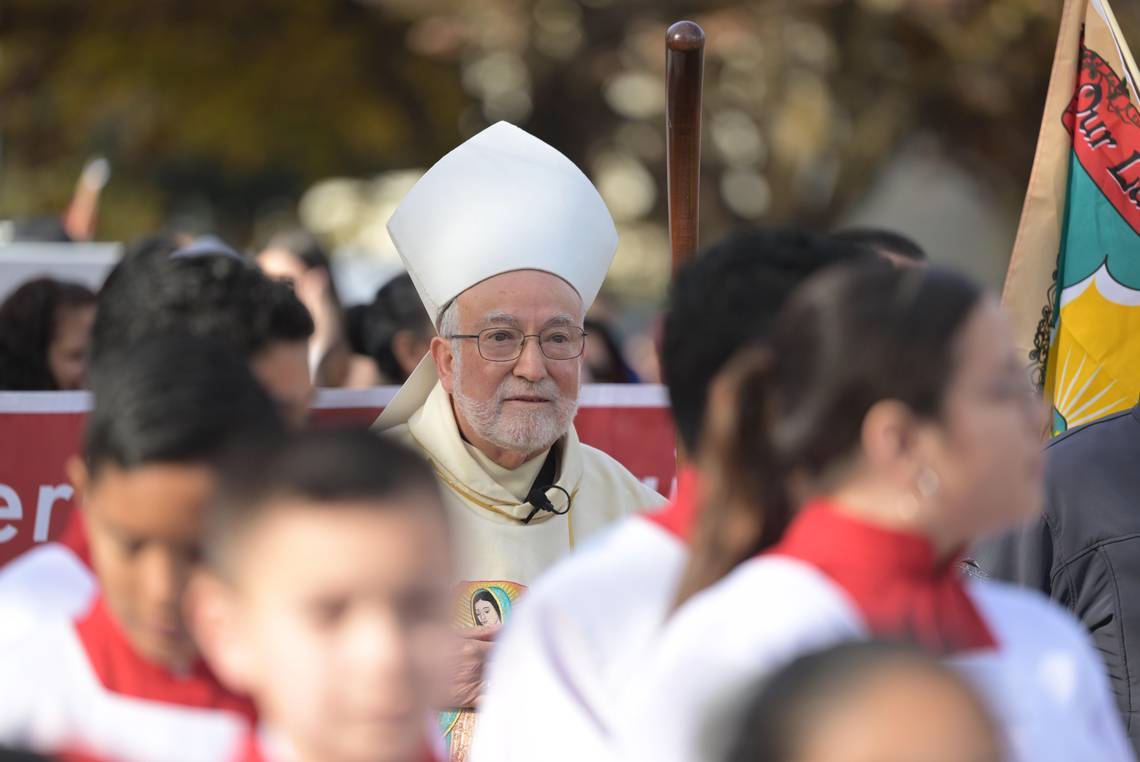The Mass was filled with children dressed in pastels, choir music and lots of incense. But there were few signs of the Roman Catholic Diocese of Sacramento’s impending bankruptcy filing.
The diocese announced it would be seeking financial protection in December and set April 1 as the date it would file in federal court. Bishop Jaime Soto, who led Easter services at the cathedral, confirmed the action would occur on Monday.
Soto is moving forward with the action as the diocese faces more than 250 lawsuits alleging sexual abuse by clergy or other church staff.
Sacramento is joining the dioceses of San Francisco, Oakland, Stockton and Santa Rosa in filing for Chapter 11. Catholic districts in California have faced an increasing amount of lawsuits since 2019, when state law extended the statute of limitations for clergy sex abuse cases. There are 46 “credibly accused clergy” who served the Sacramento diocese from 1933 to 2018, according to the church.
Soto did not address the bankruptcy during Mass, during which he shared a message focused on Easter themes of baptismal rebirth and finding hope in the sacrifices and resurrection of Jesus Christ. The only mention of survivors came during prayers toward the middle of services, when celebrants offered blessings for “victims of abuse in church and in society.”
Mass-goers The Sacramento Bee approached before and after the service were hesitant to talk about the bankruptcy. Some did not want to discuss the topic or did not believe it was their concern. Others expressed sadness for abuse survivors and said they prayed for them, while one was not aware of the impending action.
Soto greeted a long line of parishioners after Mass, many of whom approached to kiss his hand. He prayed with attendees, gave blessings and posed for selfies and family photos.

Soto told The Bee the bankruptcy will be a “very difficult chapter for us.”
“It is a time of atonement for me,” Soto said. “How can we best try to respond to that and also ensure that that never happens again. That this moment that we’re going through is because of what we’ve done. So that’s coming to light, and I’m hoping that the bankruptcy will allow us to be able to do that in the most equitable and respectful way possible.”
Some survivors and their attorneys have slammed diocese bankruptcy filings, saying they impede court proceedings, could allow abuser names to be kept secret and may limit the amount of money those filing lawsuits could recover.
When asked about those criticisms, Soto insisted bankruptcy is “the most respectful and transparent way, and an equitable way, that I can respond to those things.”
He said Easter is “always about what the Lord does. It’s not what I do,” when asked whether the holiday this year stands out given what was planned the next day.
“Lord Jesus came to free us from our sins,” Soto said. “And so if anything, now I have to rely more on his mercy and his wisdom to guide us forward.”


